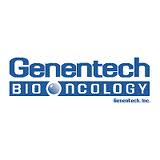FDA approves Genentech’s atezolizumab for PD-L1 positive unresectable locally advanced or metastatic triple-negative breast cancer

On March 8, 2019, the Food and Drug Administration granted accelerated approval to atezolizumab (TECENTRIQ®, Genentech Inc.) in combination with paclitaxel protein-bound for adult patients with unresectable locally advanced or metastatic triple-negative breast cancer (TNBC) whose tumors express PD-L1 (PD-L1 stained tumor-infiltrating immune cells [IC] of any intensity covering ≥ 1% of the tumor area), as determined by an FDA-approved test.
FDA also approved the VENTANA PD-L1 (SP142) Assay as a companion diagnostic device for selecting TNBC patients for atezolizumab.
Approval was based on IMpassion130 (NCT02425891), a multicenter, international, double-blinded, placebo-controlled, randomized trial that included 902 patients with unresectable locally advanced or metastatic TNBC who had not received prior chemotherapy for metastatic disease. Patients were randomized (1:1) to receive either atezolizumab (840 mg) or placebo intravenous infusions on days 1 and 15 of every 28-day cycle, plus paclitaxel protein-bound (100 mg/m2) administered via intravenous infusion on days 1, 8, and 15 of every 28-day cycle.
Tumor specimens (archival or fresh) were evaluated prospectively using the VENTANA PD-L1 (SP142) Assay at a central laboratory and the results were used as a stratification factor for randomization and to define the PD-L1 positive population for pre-specified analyses.
In patients whose tumors express PD-L1, median progression-free survival (PFS) was 7.4 months (6.6, 9.2) for patients receiving atezolizumab with paclitaxel protein-bound and 4.8 months (3.8, 5.5) for those receiving placebo with paclitaxel protein-bound. The stratified hazard ratio for PFS was 0.60 (95% CI: 0.48, 0.77; p<0.0001) in favor of the atezolizumab plus paclitaxel protein-bound arm. Objective response rate (ORR) in patients with confirmed responses was 53% compared to 33% for the atezolizumab and the placebo-containing arms, respectively. Overall survival data were immature with 43% deaths in the intent to treat (ITT) population.
The most common adverse reactions (reported in ≥ 20% of patients) with atezolizumab with paclitaxel protein-bound were alopecia, peripheral neuropathies, fatigue, nausea, diarrhea, anemia, constipation, cough, headache, neutropenia, vomiting, and decreased appetite.
This indication is approved under accelerated approval based on progression-free survival. Continued approval for this indication may be contingent upon verification and description of clinical benefit in a confirmatory trial(s).
The recommended atezolizumab dose for patients with TNBC whose tumors express PD-L1 is 840 mg administered as an intravenous infusion over 60 minutes, followed by 100 mg/m2 paclitaxel protein-bound. For each 28-day cycle, atezolizumab is administered on days 1 and 15, and paclitaxel protein-bound is administered on days 1, 8, and 15 until disease progression or unacceptable toxicity.

